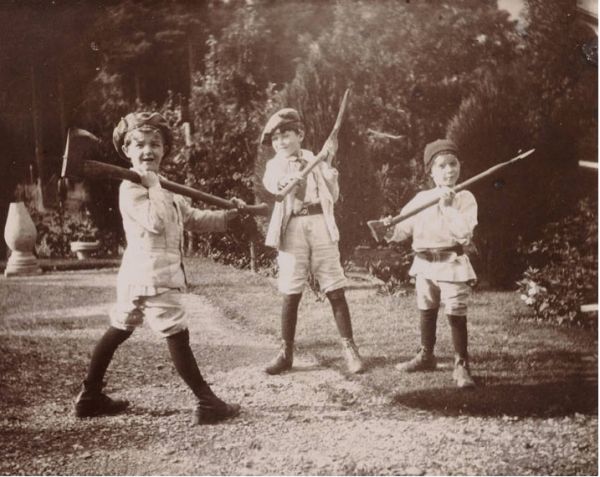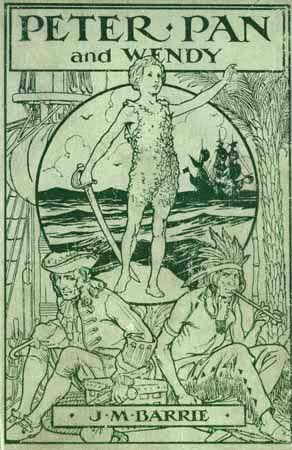Sir James Matthew Barrie, 1st Baronet, OM was a Scottish novelist and playwright, best remembered as the creator of Peter Pan. He was born on May 9, 1860, educated in Scotland, and then moved to London, where he wrote a number of successful novels and plays.
When the first baby laughed for the first time, the laugh broke into a thousand pieces and they all went skipping about, and that was the beginning of fairies.
~ James Barrie, Peter Pan
Every time a child says, "I don't believe in fairies," there is a little fairy somewhere who falls down dead.
~ Id.
Fascinating story about James Barrie, the author of Peter Pan, over at Neatorama - read the whole thing. Some excerpts:
When the first baby laughed for the first time, the laugh broke into a thousand pieces and they all went skipping about, and that was the beginning of fairies.
~ James Barrie, Peter Pan
Every time a child says, "I don't believe in fairies," there is a little fairy somewhere who falls down dead.
~ Id.
Fascinating story about James Barrie, the author of Peter Pan, over at Neatorama - read the whole thing. Some excerpts:
"All of James Barrie's life led up to the creation of Peter Pan," wrote one of his biographers.
A pivotal point came in 1866 when Barrie, the youngest in a Scottish family of ten children, was six: his brother David, the pride of the family, died in a skating accident. Barrie's mother was devastated. To comfort her, little James began imitating David's mannerisms and mimicking his speech. This bizarre charade went on for years… and only got weirder: when James reached 13, the age at which David had died, he literally stopped growing. He never stood taller than 5', and didn't shave until he was 24. He always had a thin, high-pitched voice...

In 1899, while still unhappily married, Barrie befriended young George, John, and Peter Davies and their mother, Sylvia, in London's Kensington Park. The boys' father, Arthur Davies, was too busy tending to his struggling career as a lawyer to spend much time with the family. So childless Barrie was only too happy to play with the Davies boys. He became a frequent caller at their home, and even rented a cottage nearby when they went on vacations in Surrey.
Barrie idolized the children's beautiful mother. But it was with the children that he could truly be himself. He met with them daily in the park or at their home. They played Indians together, or pretended to be pirates, forcing each other to "walk the plank." Barrie made up stories for the boys, featuring talking birds and fairies, and acted them out.
Barrie always acknowledged that the Davies boys' free-spirited youth was the inspiration for Peter Pan. "I made Peter by rubbing the five of you together, as savages with two sticks produce a flame," he wrote on the dedication page of the printed version of the play. More than that, however, the Davies family - loving mother, impatient father, and adorable sons - served as Barrie's model for the Darlings in the play. He even used their names:
* Mr. Darling was named after the eldest boy, George Davies.
* Jack Davies became John Darling.
* Michael and Nicholas became Michael Nicholas Darling.
* Peter Davies' name went to Peter Pan.
As for the author, he appears as Captain James Hook, whose right hand is gone. Barrie suffered paralysis of his right hand from tendonitis.
But this story has no happy ending. Arthur Davies died of cancer, which left Barrie and Sylvia free to marry. Barrie went so far as to give her an engagement ring, but then she, too, died of cancer. Suddenly Barrie was the legal guardian of five boys, ages 7 to 17. George, the eldest Davies child and Barrie's favorite, died in World War I in 1915. Michael drowned in a pool at Oxford while being taught to swim by a close friend; there were rumors of a suicide pact. John married and distanced himself from Barrie. Peter Davies committed suicide as an adult in an attempt to escape, some say, from forever being called "Peter Pan."
Much more in the Neatorama post, and for further reading, try this: J. M. Barrie and the Lost Boys: The Real Story Behind Peter Pan.


No comments:
Post a Comment